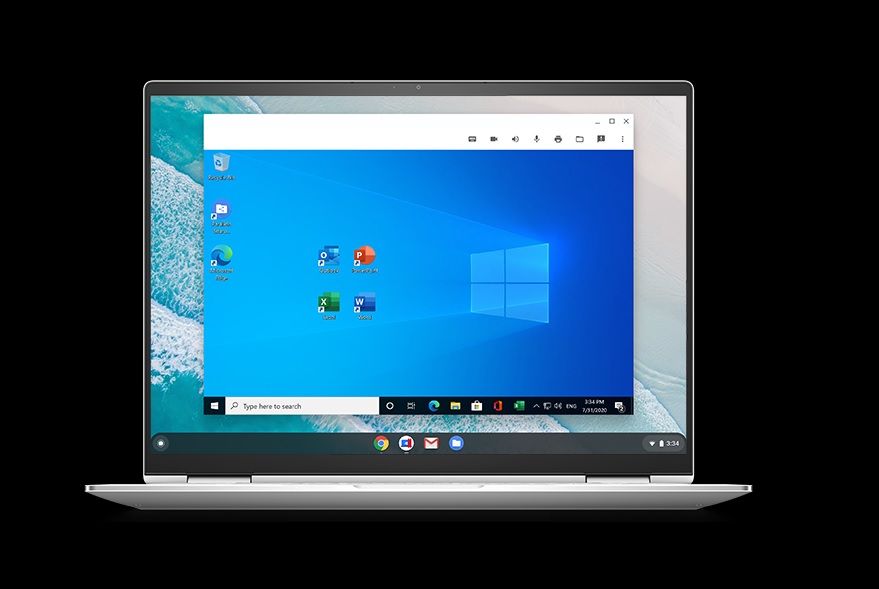You can now use Windows apps on Chromebooks — but there's a big catch
You can run a virtual version of Windows 10 within a Chrome OS window, but you'll need to be a business user

Chromebooks make for great affordable laptops that can get a surprising amount of stuff done, even with a spec sheet that looks disappointing at first. But as capable as Chrome OS has become, it’s still more limited than Windows 10.
However, you can now get around those limitations by running a virtual version of Windows 10 within your Chromebook, thanks to Google’s partnership with Parallels. The Parallels Desktop for Chromebook Enterprise allows a full version of Windows to be launched and run alongside Chrome OS and the Android apps it now supports.
- These are the best Chromebooks you can get right now
- Want more power? Check out our picks for the best laptops
- Plus: iPhone 12 benchmarks — this destroys every Android phone
This effectively turns a Chromebook into a bit of a do-everything machine, but there's a catch. The Parallels service is aimed at businesses that want to get more out of their Chromebooks; there’s no consumer version yet. And accessing Parallels Desktop for Chromebook Enterprise costs $69.99 per user, per year.
Then you'll probably be best off with a Chromebook that has a higher spec, such as a Core i5 processor rather than a low-end Celeron CPU, as well as 8GB of RAM. But most up-to-date Chromebooks should support Parallels.
Licensed versions of Windows 10 are also needed to be able to configure Chromebooks to access a virtual version of Microsoft’s operating system. In short, this isn’t likely to be a tool any Chromebook user can simply install and get started with.
But once it’s up and running you can effectively access a Windows desktop within a window on Chrome OS. What might sound like the start of a bad software-based joke, is actually a rather powerful tool to access the wider app support and functionality of a Windows machine on a Chromebook.
This is all a good sign on how the power of the internet, and the ability to stream content to all manner of devices, has the potential to effectively boost the capabilities of Chromebooks without needing powerful new hardware. We’re already seeing how services like Google Stadia allow games to be streamed to Chromebooks, essentially turning low-powered machines into gaming devices.
Sign up to get the BEST of Tom's Guide direct to your inbox.
Get instant access to breaking news, the hottest reviews, great deals and helpful tips.
The use of virtual machines and virtual desktops are nothing new. But they are seemingly getting easier to use and set up, which in turn is expanding the capabilities of various laptops and low-powered computers. And being able to do more with less, it a pretty tantalising concept in the world of computing.
Roland Moore-Colyer a Managing Editor at Tom’s Guide with a focus on news, features and opinion articles. He often writes about gaming, phones, laptops and other bits of hardware; he’s also got an interest in cars. When not at his desk Roland can be found wandering around London, often with a look of curiosity on his face.

